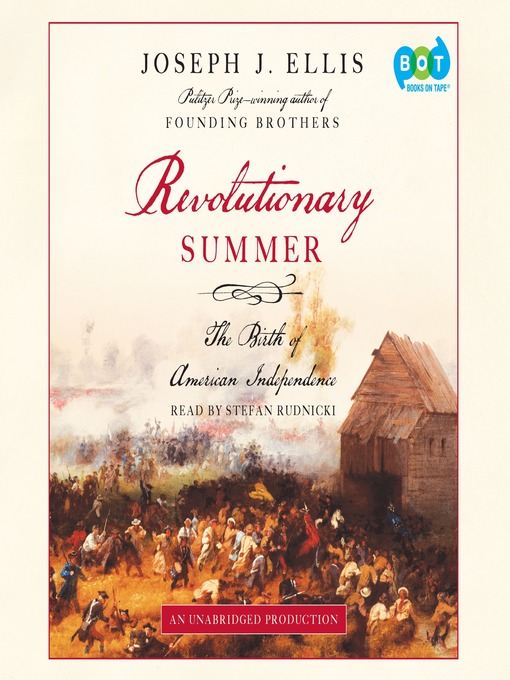A distinctive portrait of the crescendo moment in American history from the Pulitzer-winning American historian, Joseph Ellis.
The summer months of 1776 witnessed the most consequential events in the story of our country’s founding. While the thirteen colonies came together and agreed to secede from the British Empire, the British were dispatching the largest armada ever to cross the Atlantic to crush the rebellion in the cradle. The Continental Congress and the Continental Army were forced to make decisions on the run, improvising as history congealed around them. In a brilliant and seamless narrative, Ellis meticulously examines the most influential figures in this propitious moment, including George Washington, John Adams, Thomas Jefferson, Benjamin Franklin, and Britain’s Admiral Lord Richard and General William Howe. He weaves together the political and military experiences as two sides of a single story, and shows how events on one front influenced outcomes on the other.
Revolutionary Summer tells an old story in a new way, with a freshness at once colorful and compelling.
-
Description
-
Creators
-
Details
-
Reviews

- Joseph J. Ellis - Author
- Stefan Rudnicki - Narrator
Awards:
OverDrive Listen audiobook
- ISBN: 9780307943781
- File size: 204281 KB
- Release date: June 4, 2013
- Duration: 07:05:35
MP3 audiobook
- ISBN: 9780307943781
- File size: 204306 KB
- Release date: June 4, 2013
- Duration: 07:05:33
- Number of parts: 6

Loading
